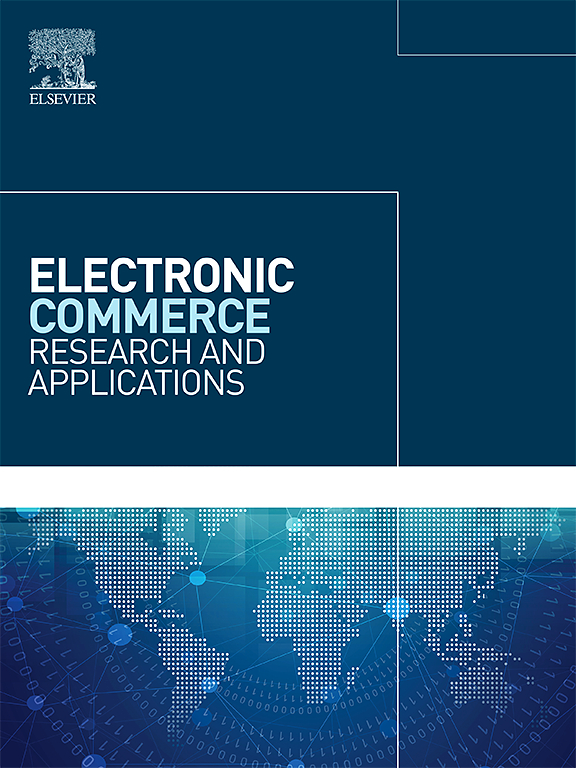Insurance policy and pricing decisions in online food delivery market with consumer ratings
IF 5.9
3区 管理学
Q1 BUSINESS
Electronic Commerce Research and Applications
Pub Date : 2025-01-08
DOI:10.1016/j.elerap.2024.101474
引用次数: 0
Abstract
Recent advances in mobile technology and the rise of aggregator apps have led many consumers to purchase products through online food delivery platforms, and the effects of COVID-19 have accelerated the trend. Consumers often observe other consumers’ ratings before purchasing to reduce the product’s taste and the delivery service uncertainties. However, the information accuracy of the ratings can be affected by the seller’s marketing strategies, such as the pricing and delivery insurance policy. Considering consumers’ ratings, firstly, we develop two-period models to examine how consumer uncertainty and different delivery insurance policies impact the seller and consumers. We then determine the seller’s optimal insurance policy and pricing decision. We find that the probability of delayed delivery has a nonmonotonic effect on the product’s optimal price. Counterintuitively, our analysis shows that a Free Insurance (FI) policy allows the seller to benefit from a greater delayed delivery probability by influencing consumer ratings. We show that FI is not always beneficial for the seller and consumers; it may reduce the seller’s profit and the total consumer surplus simultaneously. Surprisingly, the seller can always charge a lower price yet earn more profit by adopting a Paid Insurance (PI) policy. Furthermore, when the seller strategically chooses its price and insurance policy (e.g., No Insurance, FI, or PI), it can achieve a win-win situation; and the seller should always support insurance, i.e., adopt FI or offer PI, even though neither FI nor PI dominates under all conditions.
求助全文
约1分钟内获得全文
求助全文
来源期刊

Electronic Commerce Research and Applications
工程技术-计算机:跨学科应用
CiteScore
10.10
自引率
8.30%
发文量
97
审稿时长
63 days
期刊介绍:
Electronic Commerce Research and Applications aims to create and disseminate enduring knowledge for the fast-changing e-commerce environment. A major dilemma in e-commerce research is how to achieve a balance between the currency and the life span of knowledge.
Electronic Commerce Research and Applications will contribute to the establishment of a research community to create the knowledge, technology, theory, and applications for the development of electronic commerce. This is targeted at the intersection of technological potential and business aims.
 求助内容:
求助内容: 应助结果提醒方式:
应助结果提醒方式:


